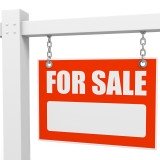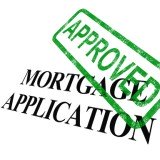Rental Property Buying - Step by Step Guide
Rental property buying made simple - Learn what are the essential steps for buying rental property today.
RELATED: Rental Property Buying Guide - Step 1 to 3
4. Searching and Getting Approved for a Mortgage Loan
Applying for a rental property mortgage can be broken down into a few basic steps.
First you'll need to get hold of your credit report so that you can spot and clean up any problems that will hinder your chances of getting approved. Improving your credit scores also means lower interest rates and cheaper loans.
Next you'll have to decide on the ideal down payment amount and mortgage duration. A rental property loan is different from your usual home loan because the lender will ask for a larger down payment and higher interest rates.
Before you meet your lenders in person, you'll have to prepare all the essential paperwork - your proof of identity, income, assets and liabilities - Click here for a complete mortgage application documents checklist.
Once that is all done, most lenders will require you to have a face to face interview with their agents. You should take this chance to have them explain the term and conditions of your mortgage loan in detail.
Yes we know that financing rental properties can be quite daunting, so we recommend you take a look at our step by step guide on how to finance rental property.
5. Hire a Home Inspector to Inspect the Rental Property
While it's not required by law, our rental property buying advice is this: Property inspections by professionals are a must before buying rental property.
Why isn't it enough just to inspect the property by yourself? The reason is because certain type of damages, such as termite infestation or water damage are almost invisible to the untrained eye. These are precisely the type of property damage that you'll want to avoid - They rake up massive repair bills and can even make the property inhabitable.
A home inspector or licensed contractor will also be able to give you a more accurate estimate of repair costs to get your rental property up to shape. This is especially important if you are dealing with run-down properties that require extensive repairs (e.g. fixer uppers).
Studies have shown that most rental property buyers under-estimate repair costs (by a big margin) so a professional property inspection will reveal whether a rental property is worth buying in the first place.
6. Negotiate the Price with the Seller and Close the Deal
Knowing the difference between the seller's asking price and reserve price is essential when you're buying rental property.
Asking price is the price tag that the seller puts up while reserve price is lowest amount that he or she is willing to accept for the property.
In almost all cases, the reserve price will be lower than the asking price so don't be afraid to make an offer if you spot a rental property investment with great potential but the price tag is just too steep. In fact, most sellers will intentionally bump up their asking prices so that it can be negotiated down later.
Once you and the seller have agreed on the price, then it's time to ink your real estate purchase contract - Be sure to read through the terms and conditions of the sale carefully - Pay special attention to who pays for which closing costs (e.g. title costs, recording fees, inspection fees, survey fees, appraisal fees, property taxes, insurance costs, attorney fees, broker commission).
- 6 Big Reasons to Buy and Own Rental Property
- How to Choose the Right Rental Property
- Rental Property Analysis - Calculating Rental Yields
- How to Calculate Cash on Cash Return
- How to Buy Rental Property in 6 Simple Steps
- Answers to Rental Property Buying Questions
- Should You Buy Rental Properties Abroad?
Visitor Comments:
-
My First Rental Property Investment 




Making your first rental property investment can be both exciting and nerve wrecking. I can vividly remember my first rental property purchase - I was …


